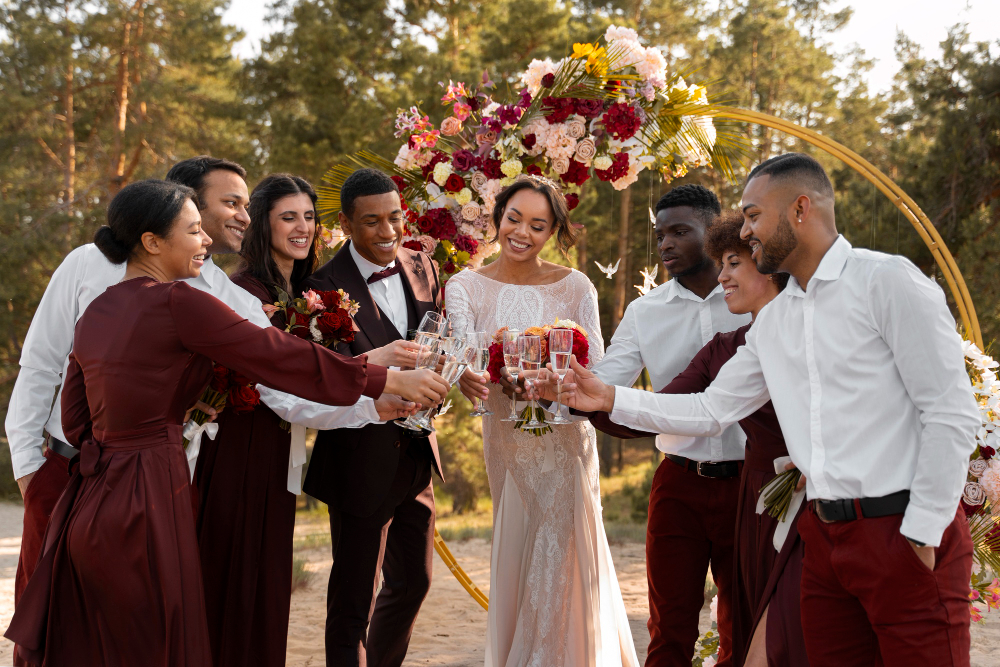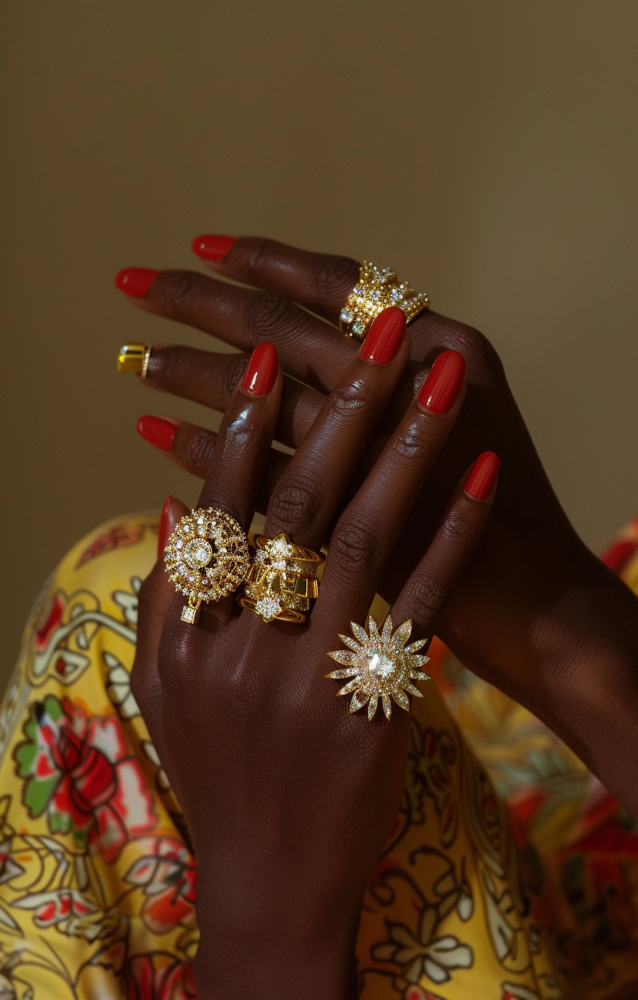Zulu Weddings
A Celebration of Heritage, Unity, and Joy
Home » Culture » Weddings & Ceremonies » Zulu Weddings
A Zulu wedding in South Africa is far more than a one-day event—it’s a vibrant, multi-layered cultural celebration steeped in heritage, family values, and ancestral pride. Known for its stunning attire, spirited music, symbolic rituals, and powerful community involvement, a traditional Zulu wedding is one of the most expressive and meaningful ceremonies on the African continent.
Lobola: The Journey Begins with Respect
The process starts with lobola negotiations, where the groom’s family offers cattle or money to the bride’s family.
It’s not simply a dowry—it’s a gesture of respect, unity, and familial bonding.
While the tradition has adapted in modern times (e.g., cash equivalents), its core meaning remains intact—to bring families together in mutual honor.
Cultural Dress and Symbolism
- The bride wears an isidwaba (leather skirt) with a matching beaded top, headpiece, and accessories—each color and design carrying symbolic meaning.
- The groom typically dons an ibheshu (animal-skin kilt) with warrior-style adornments, signifying strength, masculinity, and pride.
- Guests also arrive in vibrant traditional garments, creating a breathtaking sea of culture and identity.
Two-Part Ceremony: Honoring Both Families
Ceremony at the Bride’s Home
- Celebrates the bride’s lineage and heritage.
- Features singing, dancing, and gift exchanges, where the groom’s family shows respect.
- A moment of pride for the bride’s family, filled with emotion and tradition.
Umabo: Welcoming the Bride to Her New Home
- Takes place at the groom’s home.
- The bride’s family presents practical gifts like blankets, mats, and cookware, symbolizing her role as a wife and homemaker.
- The act represents cultural integration and family unity.
Music, Dance, and Spiritual Energy
- Singing and dancing aren’t entertainment—they’re storytelling.
- Women perform dances reflecting themes of love, resilience, and family, while men showcase powerful warrior-style movements.
- Every beat, song, and stomp carries meaning, evoking ancestral presence and collective joy.
Feasting as a Cultural Bond
- Communal meals are essential—except samp and beans, chakalaka, stewed meats, and phutu served in massive pots.
- Food is not just nourishment—it’s a symbol of unity, generosity, and gratitude.
- Sharing a meal is one of the most cherished parts of the celebration.
Modern Influences, Traditional Heart
- While some couples incorporate white wedding gowns, formal venues, or church blessings, many still honor core Zulu customs alongside modern practices
- This blend of old and new reflects how Zulu culture adapts while holding on to ancestral values.
- Search
Sponsored Ads (Coming soon)
Want to showcase your brand to a wider audience? Sponsor this section and get seen by potential customers.
- Explore South African Culture
- Key Wedding Traditions Across Cultures
- Zulu Umabo Ceremony
- Xhosa Traditional Wedding
- Afrikaans Christian Weddings
- Indian South African Weddings




